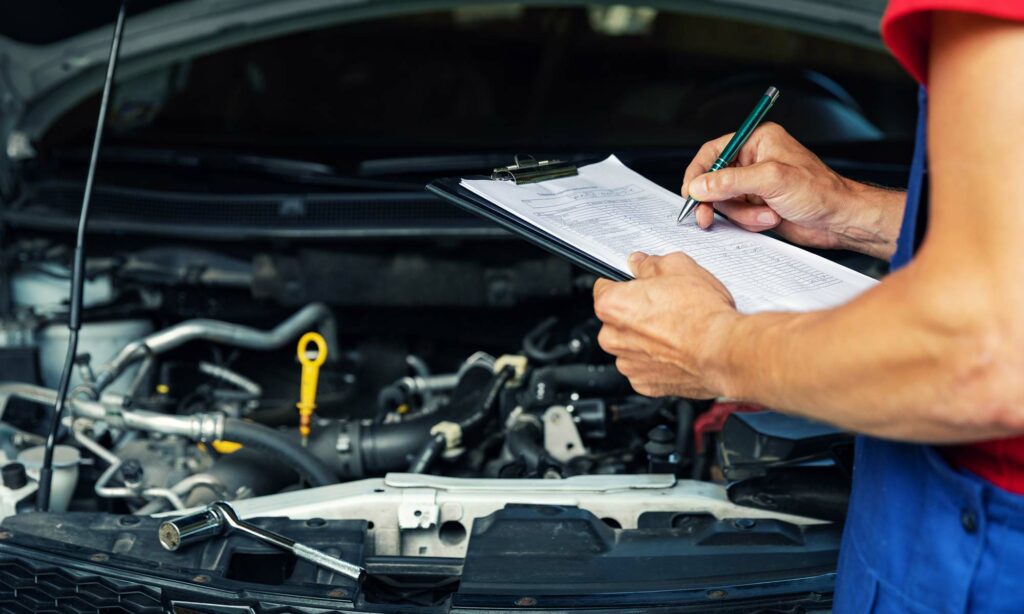
The Importance of Regular Car Inspections: How Often Do You Get Your car Inspected?
It’s crucial to maintain the general health and safety of your car for a smooth and trouble-free driving experience. One aspect of car maintenance that often goes overlooked is regular inspections. If you do specific inspections, you will identify possible issues before you need expensive repairs. To avoid further implications and extra costs, you need to know how often do you get your car inspected?
Understanding the Purpose of Car Inspections

Car inspections have many benefits for your vehicle’s health and lifespan. They help uncover any hidden issues that could affect your car’s performance, efficiency, or safety. By conducting thorough inspections, You can identify problems early on and stop them from developing into more serious and expensive difficulties. It’s crucial to remember that the particular needs and frequency of car inspections can vary significantly depending on the country, state, or region. It’s advisable to check with the local transportation authorities or relevant government agencies to understand the specific regulations and requirements for car inspections in your area.
Factors Influencing the Inspection Frequency
You should take into account that several factors determine the frequency of car inspections, such as local regulations, vehicle age, mileage, and your driving habits. It can not be denied that different regions may have specific laws dictating the frequency of mandatory inspections. How often do you get your car inspected? Consulting your local transportation authority or Department of Motor Vehicles (DMV) can provide precise information on inspection requirements in your area.The recommended frequency for car inspections can vary depending on several factors. The main factors to remember are listed below:
- Local Regulations: Different regions or countries have varying laws and regulations regarding car inspections..
- Age of the Vehicle: Newer vehicles generally require less frequent inspections, as they are equipped with advanced technologies and tend to have fewer underlying issues. Conversely, older vehicles may need more frequent inspections to maintain optimal performance.
- Driving Conditions: The type of driving conditions you encounter regularly can impact how often you should get your car inspected. If you frequently drive in rough terrain, extreme weather conditions, or heavy traffic, your vehicle may experience additional strain, necessitating more frequent inspections.
Recommended Inspection Intervals- How often do you get your car inspected?

While the recommended inspection intervals can vary, how often do you get your car inspected? These guidelines will help you:
- Annual Inspections: Most automotive experts recommend getting a comprehensive inspection at least once a year, regardless of your vehicle’s age or usage.
- Pre-Purchase Inspections: If you are considering purchasing a used car, it is wise to have a professional inspection conducted before making the final decision.
- Mileage-Based Inspections: In addition to annual inspections, many car manufacturers recommend specific inspection milestones based on mileage. These milestones can vary, but commonly occur at 30,000, 60,000, and 90,000 miles. During these inspections, professionals will thoroughly examine the vehicle, replace worn-out parts, and address any necessary maintenance.
- Visual Inspections: While not a substitute for professional inspections, performing regular visual checks can help you spot any glaring issues with your vehicle. Look for signs of leakage, unusual sounds, or any visible damage to the body or tires. If you notice anything concerning, it’s best to schedule an inspection promptly.
A device that stops mileage counting
Let me show you to a mileage blocker, a remarkable module that has the power to prevent mileage addition from any control units. What distinguishes it? It’s capable of doing it all invisibly. Modified data is invariably untraceable. The high-quality module is designed for practical uses like testing your car. You should not worry about extra mileage showing on the odometer. However, because to its faultless operation and dependability, it is employed for bad intentions. The makers of these tools do not advocate using them improperly. What is your greatest advantage? After uninstalling the module, the kilometers do not automatically add up.
Takeaway
Regular car inspections are a fundamental aspect of responsible vehicle ownership. By adhering to a consistent inspection schedule, you can catch potential problems early, ensure optimal performance, and put the security of you and other road users first. How often do you get your car inspected? This is question is popular in auto sphere. Specific inspection frequencies can vary based on local regulations, the age of the vehicle, and driving conditions. In addition, It is generally recommended to have a comprehensive inspection conducted annually. Remember, a well-maintained vehicle is a reliable one, hence don’t neglect the importance of regular car inspections.




